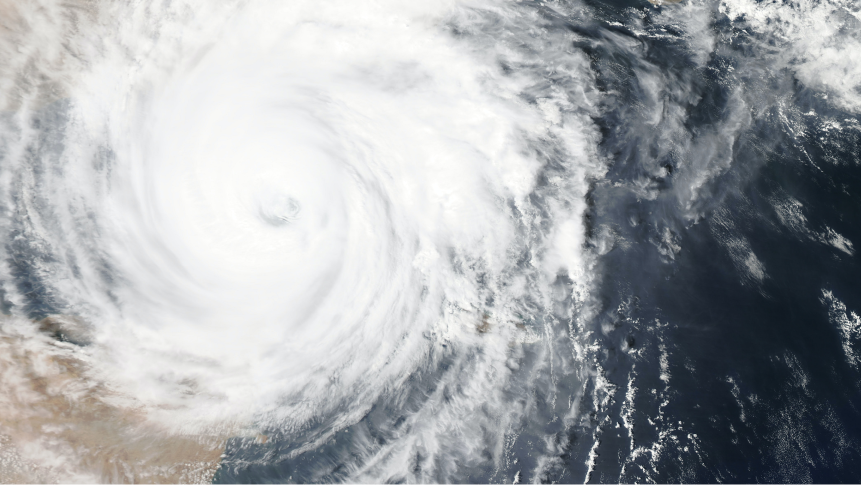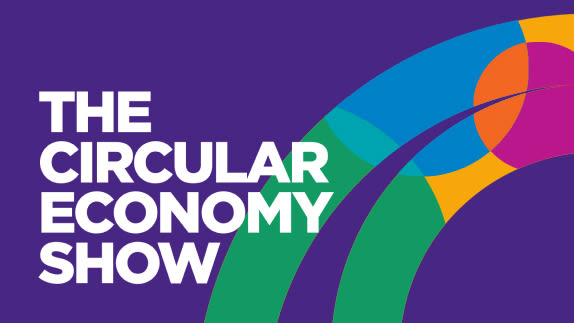In this first episode of our Circling Back season, Christiana Figueres and Ellen MacArthur bring us an inspiring conversation about the role of circular thinking in addressing the causes of climate change and in solving the crisis.
Listen on Spotify, Apple Podcasts, or wherever you get your podcast.
Click to expand
Christiana Figueres 00:00
To be perfectly honest, we are still at the point in which most of the effort and most of the focus and most of the financing is going toward how do we produce x? How do we produce energy? How do we produce transport? How do we produce food? And so we're still very much caught into this linear thinking. And still caught in chapters one and two about linear thinking, right, which is extraction in use. And we haven't close the loop to figure out and then what happens once you produce the solar panel, once you produce the wind turbine, once you produce the electric vehicle, and then what?
Pippa Shawley 00:50
Welcome to the Circular Economy Show. I'm Pippa. In this season, we're delving into the archives of the Ellen MacArthur Foundation. Circling back to great conversations you might have missed the first time round. In today's episode, we're heading back to June 2021, when the COVID 19 pandemic still dominated news headlines, to a conversation between Ellen MacArthur and Christiana Figueres. Christiana is perhaps best known for her work as Executive Secretary of the United Nations Framework Convention on Climate Change, between 2010 and 2016. There, she played an important role in the COP21 negotiations in Paris, which is seen by many as a pivotal moment where the global community came together to set commitments to reduce greenhouse gas emissions. Today, Christiana continues to campaign for action on climate change. She's the co-host of the podcast Outrage and Optimism and chair of the Earthshot Prize Foundation. Ellen and Christiana spoke ahead of COP26. But the conversation feels timely following the outcomes of the recent COP28, where circular economy was explicitly mentioned for the first time. In this episode, we'll hear Ellen and Christiana discuss how the circular economy can help us tackle climate change, the role of design in achieving this, and why it's important to remain stubbornly optimistic. Ellen began by asking Christiana about what led to the Paris Agreement.
Ellen MacArthur 02:11
Christiana, thank you so much for agreeing to have a conversation with us. We're really privileged. And I want to start with your incredible journey to Paris because something extraordinary really happened there. It was a moment. What in your thoughts led to that moment? Why was that moment so different? Why was it what made it special? We need more like this. But what was so special about it? Yeah, we need many moments like that. Actually, you're right. But first of all, Ellen, thank you very much. Thank you for inviting me to, what I'm sure it's going to be a delightful conversation with you. And can I just say, I miss seeing you in person. So I hope we're through this dark tunnel soon. But yes, Paris. I mean, it's interesting to describe it as a moment. Honestly, for me, it wasn't a moment, it was a whole process. It was years and years and years of developing a pathway for the global economy to ultimately reach decarbonisation by 2050. So that's, you know, from a science point of view, but it was a pathway in a process that many different levels first, you know, to be guided by science, right, that level of decarbonisation had to be in there. But then also a process that started with changing the mindset. When I took over the, the, the negotiations in 2010, when then Secretary General Ban Ki Moon asked me to take our leadership of that everyone was on a very bad mood on climate because we were just coming out of the failed Copenhagen conference. So everybody thought this is impossible, it's too complex. It's too expensive. And the most optimistic people said, it's too late anyway. So let's not even try, right? Well, that was the attitude that I thought no, this is not going to take us anywhere. We have to change our mindset, we have to change our attitude. Yes, let's admit that it is astonishingly, perhaps even for some overwhelmingly difficult and complex. But if we allow that complexity, to put us into a dark box, then we paralyse ourselves and then it makes it a self defining a self defining process, that it will never be successful because we have decided that we cannot be successful. And so if that's true, the opposite is also true. We can work towards success we can address climate change, in an only in as much as we change our attitude and we say we have the resources we have the finance, we know what the policies should be. And above all, we have the hue in spirit, the human innovation, the human determination, to focus all of that, on addressing climate change. So it was a multi year process to change people's everyone's attitudes. Then, of course, we were also helped by the fact that technology solutions came down in price of renewable energy prices came down. We were very helped by geopolitics with because we had President Obama in his second term, and willing to use some of his last political capital on this, we were incredibly benefited by enlightened leadership and China, as well as in many other countries. So many, many stars aligned for that what you call one moment, that was actually a very long moment, like a five year long moment. The situation we find ourselves in today, coming through one hopes, the the COVID epidemic that has completely thrown the world upside down. I mean, in every country for everyone, everybody has been forced to stop and think, from businesses, to policymakers to citizens, to reflect. And I think there was a fear that because of the gravity of COVID, and the disruption in everyone's lives now that the climate conversation might have been put on the back burner, but I don't think that's been the case at all. I think actually, that reflection has really made people sit up and think about the long term view about what we want the world to be the stimulus packages, what's your reflection on, on COVID and climate right now?
Christiana Figueres 06:29
Well, I totally agree with you. And I must admit that right, in the beginning, I had the same concern, I thought, oh, my gosh, of course, we're going to be moving toward a mindset of immediate attention to the immediate term. And we will forget about the long term. But but that was not the case. Well, I do think that there is a substantial number of people who have understood with COVID, that there is an inexorable link between the health of nature and the health of society, between human health and planetary health. And that that is something that we actually have to have to heal in order to protected for generations to come. And that has led, in addition to the fact that throughout this time, we have had even more details coming from the science of climate that has led actually to astonishing moment, of course, the election of President Biden helped enormously politically, but we're also seeing much more awareness in the financial sector, they have really understood that there's a huge risk of staying invested in high carbon assets, and they are moving out. We now just last week, we had the G7 member countries that came out with a very strong statement about they're going to get out of international coal financing by the end of this year. And they're doing that yes, in part because there's public expectation for them to do that. But to a great extent, because they understand that those assets are already stranded assets, that they are risking their investment that they are losing the value of that investment with every day that they continue being invested there. So the financial sector has shifted incredibly over the past 18 months. And then, of course, the political or geopolitical shift has also occurred, with so many more countries coming forward to already preempt what they will have to formalise at COP26 in Glasgow, which is their next level of ambition on decarbonisation.
Ellen MacArthur 08:45
It's going to be a big moment. And I think one thing I really found through the whole pandemic was the ability to move quickly, was almost exhibited in a way we've never seen before, from a political perspective, and nobody quite knew what was happening. But the earth was moved overnight. And the stimulus packages have come forward, you know, we need to rebuild the economy. And I feel great hope in this this direction. We need to rebuild things, we have this money, we need to move things in the right direction, we have an opportunity here to move things in the right direction. I agree with you with the finance industry is just turning, looking at that long term growth. What can really run in the long term? What do we want to be investing in for the future? It's, it's a very, very positive sign. Do you feel in that in that kind of turning of the financial ship and the and the changing of people's in some ways expectations? Do you feel that interconnected enough? Do you feel that that the finance and the the looking at the future? Is everything connected enough to bring the climate objectives to reality? Or are we still living too much in silos?
Christiana Figueres 09:52
In silos, yes. And that's why I'm so grateful to you, Alan, that you are you know, such a clear advocate to work us all to realise that all of this is interconnected. You know, it is really only our puny little human minds that originally separated all of this, you don't see that separation in nature. You don't see that separation systemically. Systems operate... there, because, they operate because they're systematically interlinked. That's why they operate. And the moment that you begin to break that down, then those systems actually have have a breakdown that do is very difficult to rebuild. So it's only our incapacity, our mental incapacity to originally have understood that all of this is interlinked. And that's what I think is so exciting about the fact that we're alive right now. Because we now know that all of this is interlinked. Now, the task is to take it from the under theoretical understanding to the practice, the day to day practice that will influence decisions, and to begin to not just think systemically, but act, invest systemically. And that's a very, very exciting evolution of the human race if you want, right, because we've been working on well to, you know, to use your, your framework, we've been working linearly in silos, you know, for such a long time. And all of that needs to be thrown out of the window or evolved into a much more comprehensive, circular economy, integrated economy, so that we understand that yes, in order for us to understand the kind of society that we want to build, we did have to enumerate 17, different SDGs Sustainable Development Goals, because our minds need to think that way. But that's not really reflective of reality, all of those 17 SDGs, are actually intricately interlinked, and you cannot work on benefiting or increasing one without having positive effects on the others. And conversely, if you damage one, if you destroy the fabric underneath one, you're destroying the fabric underneath the entire thing. So you know, we're slowly, slowly getting there. I, you know, sort of spend my days halfway in impatience about, oh, my God, why have we not understood this better, and patience to understand that this kind of transformation is so deep, and, so Earth shattering or mental shattering, that it is going to take time. Now, as we know, we're running out of time on climate change. So um, yeah, how do you propose that we speed that understanding up?
Ellen MacArthur 13:05
I think it's quite interesting. It's a journey we've been on at the Foundation, you know, our goal as a Foundation is to accelerate the transition to a circular economy, as fast as possible. And when we entered into the climate space, and we looked in great detail at how the circular economy can help us to tackle climate change, it really struck me that so much of the climate conversation is about switching to renewables and energy efficiency, which is obviously absolutely vital that we understand that, everybody understands that. But then there's the kind of the 45%, which is about how we make products, how we use products, that could be you know, cars, or phones or food systems, they have a massive implication towards climate change. And yet, in the conversation, that that part doesn't seem to be illustrated, as well as this, the end of the energy transition, we get it, we're on it, you know, we're transforming, but there's a massive potential there. And when we looked at the numbers, looking at steel, cement, plastic food systems, and aluminium, and switch those to circularity, about half that 45% could be tackled with that. So we feel incredibly optimistic that this is this great opportunity, through shifting to circularity to, to work towards climate targets, but how do you feel about that optimism and that circularity potential in the climate discussions, particularly at COP26, do you think it's there enough?
Chirstiana Figueres 14:23
No, it's definitely not there enough. And I am, you know, thoroughly delighted that you all are pushing on this. Because to be perfectly honest, we are still at the point in which most of the effort and most of the focus and most of the financing is going toward how do we produce X? How do we produce energy? How do we produce transport? How do we produce food? And so we're still very much caught into this linear thinking. And still caught in chapters one and two about linear Thinking right, which is extraction in use. And we haven't close the loop to figure out and then what happens once you produce the solar panel, once you produce the, the wind turbine, once you produce the electric vehicle, and then what? And it's that and then what we're not focusing on yet, right? We're going at this and addressing climate and emissions very much from a linear economy perspective, without fast forwarding or thinking to the end of that linear, and then asking, you know, the very difficult question, then what happens? And then we're surprised, right? We're surprised when somebody comes up with saying, well, then, you know, when you produce all of these EVs than the batteries that, you know, we're gonna have to discard here is the environmental, you know, damage from those batteries, et cetera, et cetera, et cetera? Well, why didn't we think about that at the very beginning and design that differently? And so you know, I am totally with you on that, on that in order. I mean, yes, we're in a race against time, yes, we have to cut emissions immediately. But it's not just about the missions that we cut right now. It's about what are we going to do about permanent emissions that we're going to have on this planet. And if we don't look at that third part of the linear economy, and realise that that third chapter needs to be bent, so that it actually comes back to the beginning and that what we're facing is a circle and not a line. We're just, we're just putting ourselves into the next challenge.
Ellen MacArthur 16:42
And it really strikes me as it's not intelligent design to build something that's going to become waste. It just doesn't make sense in today's economy. It doesn't make economic sense. And it doesn't really make any sense from a clever design perspective, if you want to have pride in design, as a designer, you want to be building something that really can fit within a system. And it really struck me actually many years ago, going around a remanufacturing factory. It was remanufacturing engines with Renault. And I walked around the factory and we were looking at how they were taking broken engines, disassembling them, ultrasonically cleaning the parts, and reassembling them. The engine that was repaired, remanufactured went out the door like a new engine, same warranty as a new engine, yet it had 80% less material in it, and 80% less energy embedded when compared to a new engine. And yet that was a broken engine. So it made me think, what if the EVs of the future are designed so they don't break so we have telemetry, we have connectivity, we know when something needs changing. To do that, before you get to that point, then you have even more carbon savings, even more material savings. And it's exactly that thinking that intelligent design, you can fit into the system. And you've been you've been looking a lot of the above at the the nexus between biodiversity and climate and the interconnected nature of of land use. What are your most recent thoughts in that space?
Chirstiana Figueres 18:04
Well, I'm actually pretty concerned there because if you look at where we are progressing on, on solutions to climate, we've definitely focused on the energy sector, whether that's production of electricity and use of electricity or distribution, or transport, the two big sub chapters of energy. And that is understandable, because 70% of our greenhouse gases come from the energy side, but 30% comes from land use. And so 70% is good, but we cannot blind ourselves to 30% of the problem and 30% of the solution. And so it's only in the past, I would say 12 months, perhaps, Ellen, coincidental, maybe purposely or maybe not with COVID, that we have discovered that those 30% need to be front and centre for us as well. And so we're beginning to see much more attention to the capacity that the Earth has to capture carbon out of the air, and sequester it and sink it into biomass and back into the soils where it belongs. My favourite way of thinking about this is as though it were a real estate problem, right? Because our CO2 in the air is nothing but a location problem. CO2 in the air is a problem. But CO2 in the soil or in biomass is a friend that is exactly where we should do so we should think about location, location, location, just like you know, real estate agents who know that the best location for anything that they want to, to site, and we shouldn't be thinking about that as well. The interesting thing from your perspective, of course, is that that is the natural cycle of CO2, we have actually dug up, the CO2 from dinosaurs that have been keeping the CO2 down there for millions of years, we've dug it up, we have produced liquid fuels and solid fuels, coal, oil gas, from that we have released that into the air. And it's that linear release of CO2 that has gotten us into the problem to begin with. If we now bend that and say: Okay, that's been released in the air. In the meantime, we have used it for our purposes. But how do we now bend that third chapter, right? Where it's basically being released as waste, as pollution into the air, hence, producing climate change. If we actually mentally now understand, okay, that's up in the air. Now, how do we bring that back? Yes, we have to cut down on how much of greenhouse gases we're emitting. Absolutely. But in addition to that, all of that CO2 or most of that CO2 that is out there can be bent back down into much more of a circular concept, where you relocate CO2 into the soils, into the biomass, and therefore make natural systems much more healthy, and much more capable of producing food, wood, trees, everything that that then produces photosynthesis, and then the circular cycle, the cycle of CO2 continues, we have broken the cycle of CO2, that's the problem. And we need to re stitch that cycle.
Ellen MacArthur 21:46
And I think that's a really important point. And that's something that we've been working on, very closely looking at that cycle, looking at where you want that carbon, looking at regenerative agriculture to bend that loop, as you say, back into the ground. But what's really interesting is, I think that that regenerative agriculture story was very small. As you say, this is a conversation which has grown phenomenally in the last year. Now the conversations we're having is with some of the biggest food procurers in the world, looking at how they can play a part to bend that cycle, how they can regenerate the soil as to how they can play a part in making the world a better place rather than just cutting here. And they're saying no, we can actually restore, we can actually regenerate. And I think that's a really, really interesting space to be in. Now, Christiana, we only have time for one more question. And I just wanted to end on asking you why is now the time to ask to act.
Chirstiana Figueres 22:36
Well, actually, the time to act was 30 years ago. Um, you know, when that's the sad truth that we've actually delayed this way too long, 30, 40, 50 years ago, would have made things much easier. Now, the fact is, we didn't have the technologies that we have now. And we didn't have the capital available. So you know, let's, let's say we didn't have the tools. But now we have the tools. Now that we have the tools which are basically three, finance, technologies and policies. Now with those three tools, we have to be able to garner our will our determination, our stubbornness, as I call it, to actually be able to combine all those three in a timely fashion, Ellen, because science has been very clear. If we are not able to cut greenhouse gas emissions from our current levels to 50%, of what we're emitting by 2030, we are fried, we are fried, because by 2030, we will have collectively decided what kind of future all human beings are going to have on this planet. And neither you nor I want on our watch for a decision to be made for constant and increasing human misery. That is not something that we want to be responsible for. So we have very, very short nine years left, to be able to garner all of our intelligence, all of our determination, all of our ingenuity with the tools that we have to say, right, we can do this. We can cut emissions in half by 2030. Furthermore, we must.
Ellen MacArthur 24:22
That's a phenomenal way to end. Christiana, thank you so much for your time, your enthusiasm, your energy, and all you've done. Thank you.
Chirstiana Figueres 24:30
Thank you very much, Ellen.
Pippa Shawley 24:35
As Christiana said, we're in a race against time to cut emissions immediately. But we need a circular economy to ensure that we plan for a future where such emissions are avoided from the design stage of everything in our economy. As Ellen raised switching to 100% renewable energy only tackles 55% of emissions. The other 45% comes from the way we make and use products and grow our food. Later in this series, we'll be asking how we can design a better food system, and how businesses are developing new materials that avoid waste and pollution from the very beginning. If you'd like to learn more about the outcomes of COP28, you can find our key takeaways in our show notes. Thanks for listening. I hope you enjoyed this episode. Let us know what you think by emailing us at podcast@emf.org or leaving a comment on Spotify. We'll be back next week to look at regenerative design. See you then.





